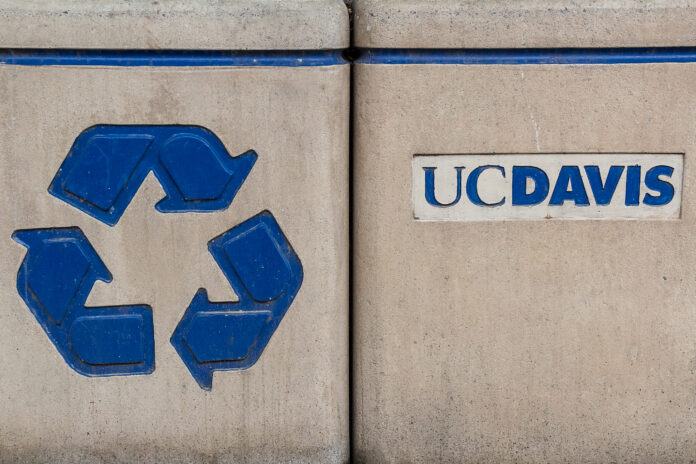We can avoid the headache of recycling if we become more sustainable
We’ve all been there: standing in the middle of the CoHo with trash in your hands and what seems to be a million options on how to recycle the items. It can be intimidating to feel the pressure of “saving the planet” on your shoulders, especially when it seems like everyone around is judging whether you put your trash in the right place.
But don’t worry, there’s no recycling-police or environmental extremist group that’s going to embarrass you if you get it wrong (though I can’t fully guarantee the latter). I’m here to say you’re not alone if you feel confused or overwhelmed. The truth is that most people don’t know how to recycle properly and get it wrong themselves.
Recycling is messy and complicated. Some may wonder if all the headaches are worth it. How is categorizing my trash going to stop climate change?
You probably recycle more than you give yourself credit for. If you’ve ever reused an old item for a new purpose — like using an old shirt to wash your car — you’re recycling. On a larger scale, recycling can be more beneficial economically and environmentally. Large-scale recycling is when consumer goods are collected by a private or municipal agency and the goods are broken down back into their raw materials and sold to be used for new consumer products.
While 75% of American waste is recyclable, a Yale University study showed that we only recycle about 21.4% of our waste. We’re not even close to competing with top nations like Germany, which recycles an astonishing 65% of its waste. But the Environmental Protection Agency estimates that if we increase our recycling rates to 35%, we would slash 21.4 million metric tons of carbon equivalents, which is the same annual electricity consumption of 11 million households.
What makes achieving a 35% recycling rate complicated is the inconsistency between recycling methods. Every municipality has its own local agency — sometimes more than one — and each has its own way to recycle with its own nitpicking customs. So while crushing your cans in your old town allowed for more space in the recycling unit, a different recycling stream in your new town could sort it as “paper,” contaminating the batch and costing a lot of hours and energy to fix.
This creates a constant state of confusion for the consumer and stress for the recycling workers. The best approach is to contact your local recycling agency. If you live in the city of Davis, abide by the rules of Recology, a recycling company headquartered in San Francisco. If you live on campus or are recycling on campus, you must follow Sustainable 2nd Century’s rules.
UC Davis is currently trying to reach its goal of zero waste by 2020, and recycling is a big part of that. So while recycling might be confusing at times, it becomes your responsibility to dispose of waste properly once it’s in your possession by following the correct protocol. If you feel like you’re somewhere on campus that’s missing specific recycling bins, take action and send a service request to the Facilities Management’s website.
We’re lucky to be part of a campus that’s very enthusiastic about recycling. The UC system was designated a “Green Power Leader” for 2017 at the EPA’s annual Green Power Leadership Awards, and UC Davis was recognized as a major contributor to the achievement.
Unfortunately, recycling doesn’t necessarily mean we’re in the clear. Recycling doesn’t neutralize the human impact on the environment — it’s just less detrimental to the planet than extracting new materials from it. Recycling is a band-aid solution for the problem of overconsumption that we’ve already created. So instead of risking being busted by environmental extremists, if you follow the first two R’s of conservation — Reduce and Reuse — you won’t have to worry about the third: Recycle.
Written by: Daniel Oropeza — daoropeza@ucdavis.edu
Disclaimer: The views and opinions expressed by individual columnists belong to the columnists alone and do not necessarily indicate the views and opinions held by The California Aggie.




